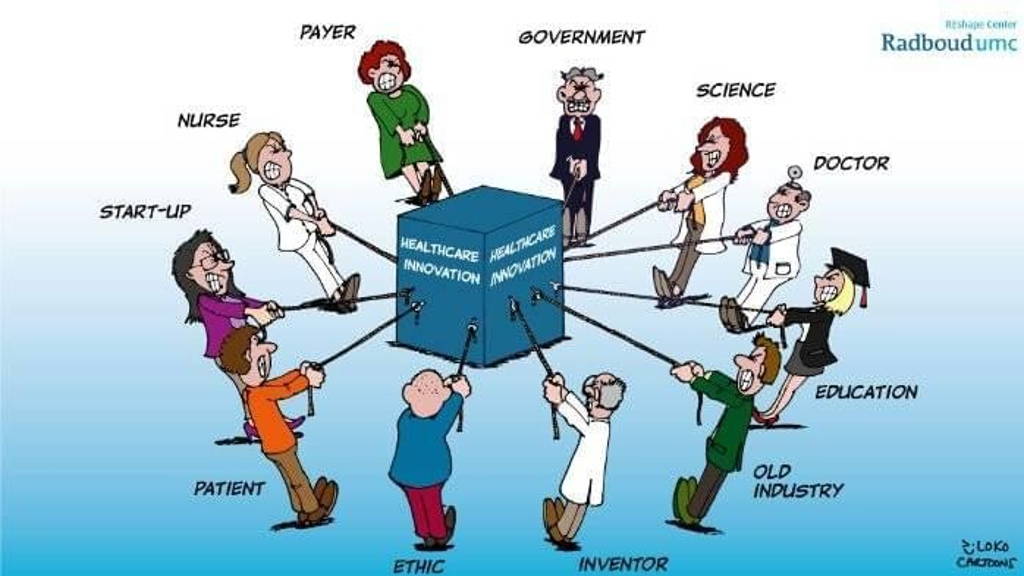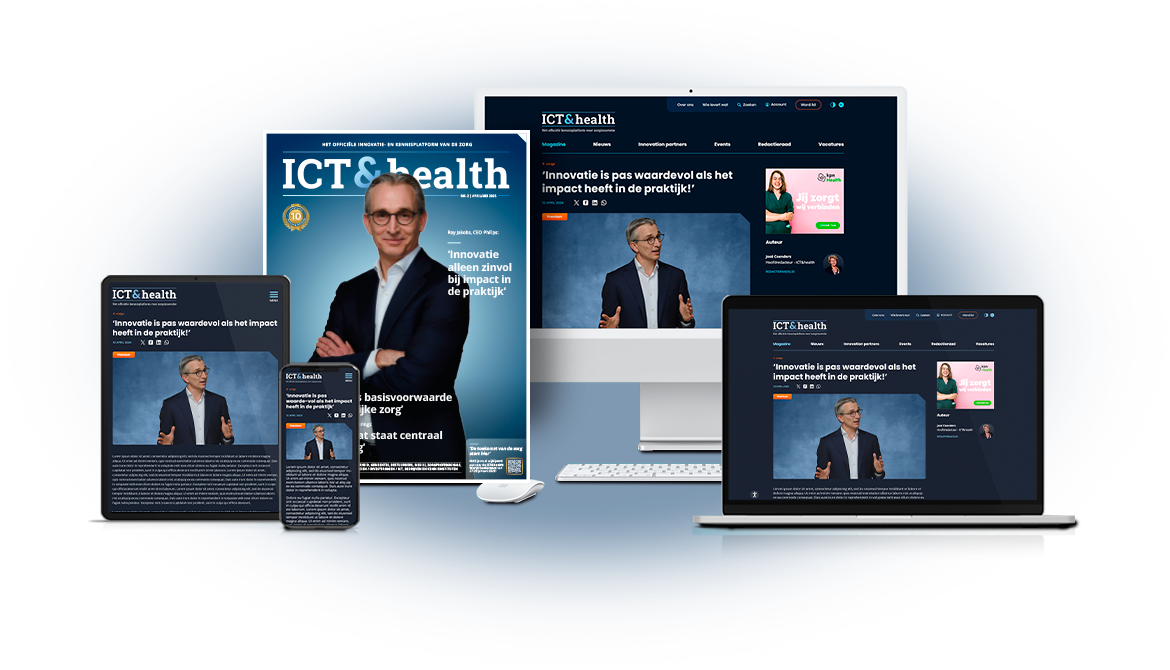Often ‘innovation’ is seen as a process where someone else has to change. Just like everyone wants to innovate but nobody really wants to change.
Nowadays in every 3 sentences of business writings the term “innovation” drops in, most preferably disrúptive innovation. But what innovation really is and when a regular process-improvement becomes an innovation probably always will stay the question due to a fuzzy line. Actually the definition doesn’t matter much, once an idea hits your brain and you want to work on it ;-) At the start of this year i shared 10 impactful innovations for healthcare.
Over the last 5 years I’ve been ‘in innovation’ in healthcare, but most of our learnings are so general, I wanted to share 11 small ones we ran into with you:
1) Failure acceptance is one of the basics of innovation. We might even learn more from our failures than our succeses. Honda founder Sochiro Honda said “Succes is 99% failure”
2) Opposing, but equal forces, cancel each other out according to Newtons 3rd law. So there has to be inequality in play in innovation just like any other process to create movement, otherwise it will create a standstill. Inequality might be on quality, cost, or the experience of the innovation, unless there is some inequality, you might say that there is no innovation.
alt="""" width=""1000"" height=""563"" data-htmlarea-file-uid=""1098"" data-htmlarea-file-table=""sys_file"" />
3) Set a beneficiary feedback loop for innovation so start : Listening. Taking the voice of the ones you target really and authentic into account. It appeared we all stopped listening to our targeted groups actually, creating all kinds of problems in then end at the implementation phase. I addressed this in my first TED.com talk back in 2011. Like our CLO program, that evolved into Service design approach, and now is migrating into a beneficiary feedback loop for innovation.
###Video 1-Lucien###
4) Make Small Smart Groups : SSG’s (KSGtjes as i called them in Dutch : Kleine Slimme groepjes) with actually all targeted stakeholders at the table. Don’t make them too big, no more that can eat 1 pizza (refering to the 2 pizza teams of Amazon) Using the principles of service design makes good sense to test if your innovation really is a solution to a problem, or a problem looking for a solution.
alt="""" width=""1000"" height=""523"" data-htmlarea-file-uid=""1097"" data-htmlarea-file-table=""sys_file"" />
5) You know about the Idea & Innovation-killers, right ? When i started the REshape Center promising i would take care of them later i declared : "It can not be done", “Money”, “Legislation” and “Privacy” to be forbidden words and arguments in the ideation phase. It prevents us from getting to the real point. Take care of them once you have figured out your idea, opportunity and need.
###Video Lucien-2###
6) Luck is part of innovation, just as serendipity is. Don’t wait for finding your luck, or expect serendipity to occur at an instant nor to build your company on one of both. Both are part of innovation, sudden unexpected pathways that surface, developments in the world to happen, can be part of making your innovation a succes.
7) Accept delays if the gap is too big still and start working with the ones that DO believe in your innovation : the Coalition of the willing. Don’t wait for the others, it will cost you more energy to convince 1% of them than to get a lot of others on board if your innovation really is worth it.
8) Although innovation has to occur in every department it might pay of to set a separate unit working on specific topics or approaches, also to prevent “discussing the x-mas menu with the turkey”. In this case report to highest authority in the company is crucial. You might even turn out having to create your own competitor IN your own company.
9) Try to make a projection of the gap between having the innovation in place and the current situation (i.e. on cash stream like the one from Clayton Christin of Harvard)
10) Take a long deep breath and just START, one can easily talk for months and months about what cóuld happen, but only by starting to really work on it, with all the stakeholders will work.
11) And most of all : have fun ! Innovation should be fun, exploring new worlds, options and endeavors together benefits the most when it is a playfull experience.
###Video Lucien-3###
Of course there is a lot more to say, but I am curious to YOUR additions in the comments. What are your lessons to share?
Door: Lucien Engelen, Director REshape Center for Innovation at Radboud University Medical Center, Gasthoofdredacteur ICT&health en voorzitter van de redactieraad ICT&health. @lucienengelen
Read more and follow Lucien at Linkedin










